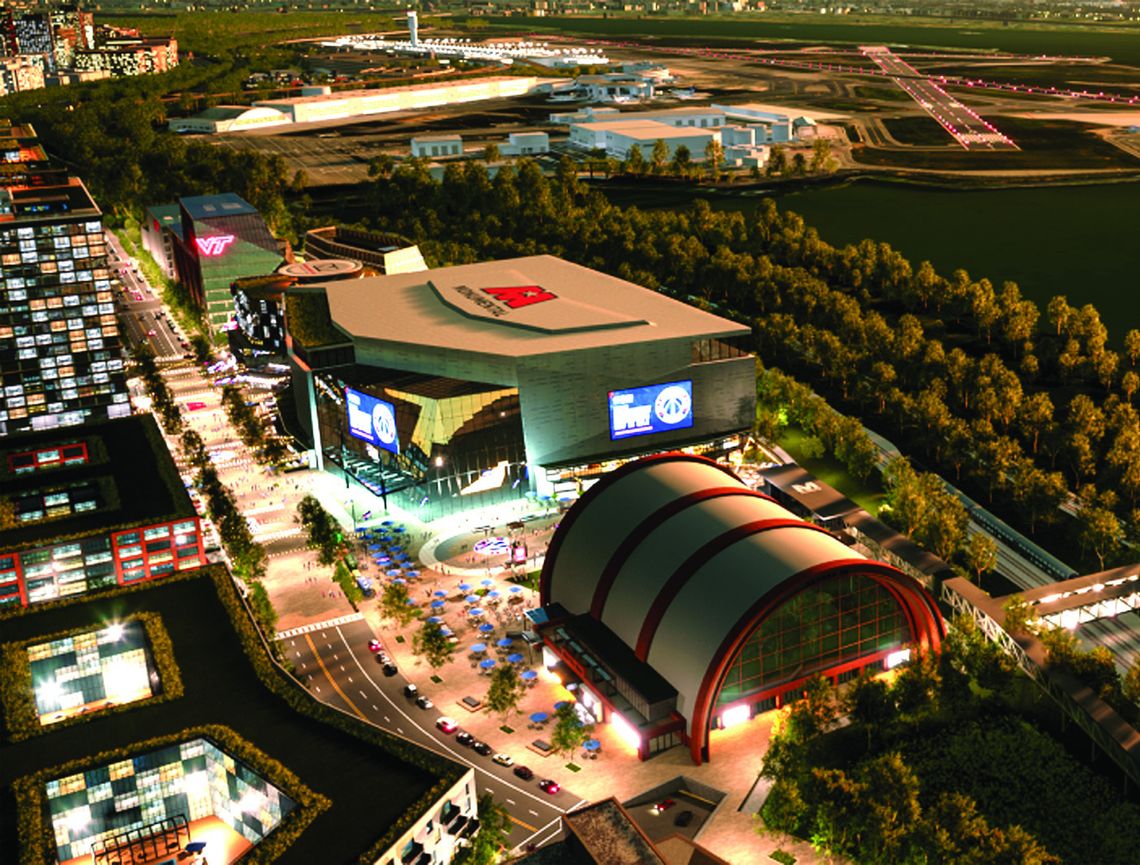Editorial
What does a plan to bring big league sports franchises to Northern Virginia have in common with a proposal to establish a retail marijuana market in Virginia? Each could be a key bargaining chip for lawmakers as they seek to reach a state budget agreement in the waning days of the General Assembly.
Republican Gov. Glenn Youngkin is trying to persuade lawmakers to support an economic development proposal his office helped broker to build a new sports/ entertainment complex in Alexandria that would house the Washington Wizards of the National Basketball Association and the Washington Capitals of the National Hockey League.
The public-private partnership heralded by Youngkin would establish an entertainment and sports district on a 70-acre site along the Potomac River that would have venues for concerts and professional sports as well as business offices, retail shops, restaurants, hotels and residential units. Supporters contend that the proposal would eventually lead to the creation of up to 30,000 jobs and make a huge economic impact worth billions of dollars for the state and region.
Democrats, led by state Sen. Aaron Rouse of Virginia Beach and Del. Paul Krizek of Fairfax County, are pushing bills that would establish a legal retail market for buying and selling marijuana. Possession of small amounts of marijuana is already legal in Virginia but it’s still against the law to buy or sell it. This dichotomy of conflicting laws needs to be cleared up not just for the sake of ending the confusion. Legal sales would eliminate a black market that leads to other criminal activity, be a boon for businesses that sell it and provide a source of tax revenue for the state and local governments. Regulation could also ensure safety standards of the product.
Youngkin would love to leave a legacy of bringing NBA and NHL franchises to Virginia – the first such top tier sports teams in the commonwealth since the Virginia Squires of the American Basketball Association in the early 1970s – and create an abundance of robust economic development opportunities. A downside to the proposal, of course, is that all of this economic activity would add to traffic congestion woes in Northern Virginia. The proposal does call for making improvements to Metro rail serving this area.
The governor does not appear to be too keen on signing legislation that would create a marijuana retail market. He apparently doesn’t want to be associated with an initiative that could lead to increased usage of this formerly illicit substance. He may fear that increased usage could lead to society ills such as underage use or users driving under the influence. However, this substance is already legal and it’s unlikely that lawmakers are going to reverse course on the decision they made earlier to legalize it. If it’s going to remain a legal product, shouldn’t its sales be regulated and safety of the product ensured?
We are living under divided government in Virginia. Democrats hold slim majorities in the House of Delegates and state Senate. The General Assembly’s majority party doesn’t have nearly the votes needed to override gubernatorial vetoes. Because of this divide, no new laws are likely to be enacted this session on the more divisive issues of the day such as increasing or decreasing access to abortion, raising the minimum wage or cutting taxes.
However, the two issues we’ve raised here – giving the green light to sports franchises being relocated to Northern Virginia and creating a retail market for legal marijuana sales – could be sufficiently palatable to lawmakers to be viable bargaining chips in the brokering of disparate bills and a state budget. We believe both are ideas worth considering.
.jpg)



